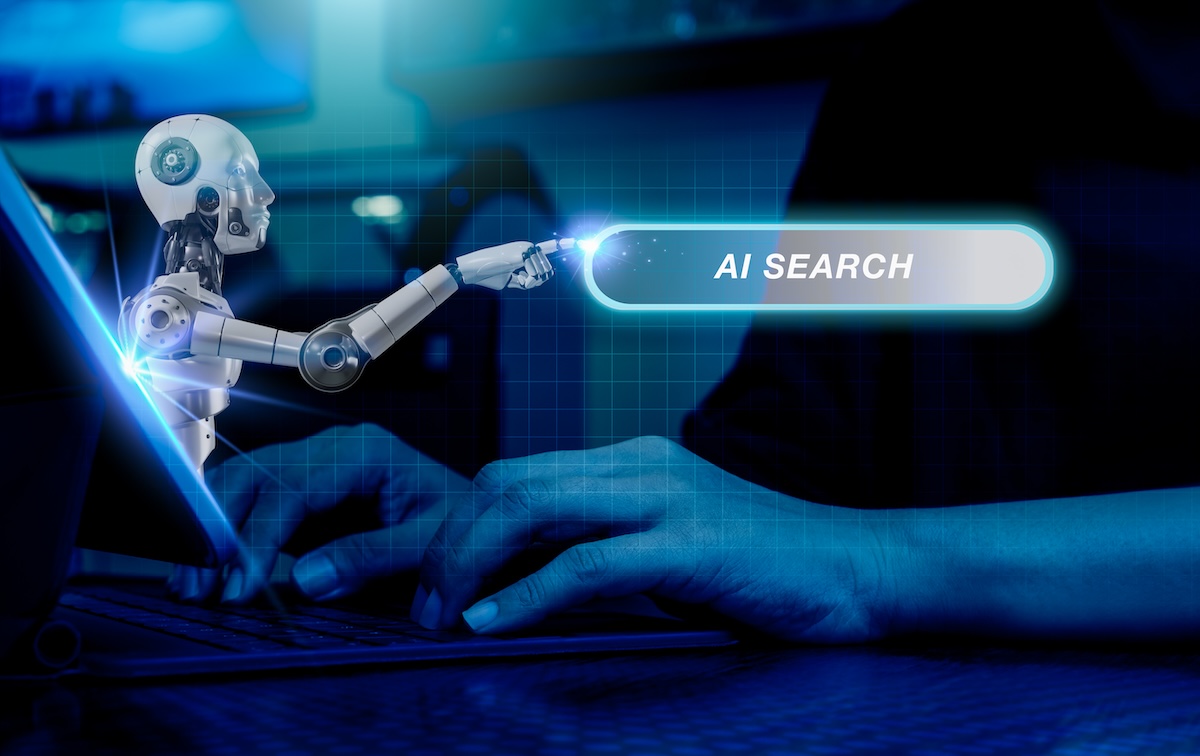
In today's digital age, visibility is key to success. Businesses strive to stand out in a crowded online space.
AI search optimization services offer a powerful solution. They leverage advanced algorithms to enhance online presence.
These services are transforming how businesses approach search engine optimization. AI can analyze vast amounts of data quickly.
This capability allows for more precise and effective strategies. AI-driven tools can automate many SEO tasks.
From keyword research to content creation, AI streamlines processes. This saves time and resources for businesses.
AI search optimization services also improve user experience. They personalize search results based on user behavior.
This personalization enhances engagement and satisfaction. AI content optimization refines content for relevance and readability.
It ensures that content aligns with user intent. This alignment boosts search engine rankings and visibility.
AI can predict search trends, keeping businesses ahead. By targeting emerging keywords, they gain a competitive edge.
AI tools provide real-time analytics, enabling agile strategy adjustments. This adaptability is crucial in a fast-paced digital world.
Embracing AI search optimization services is essential for maximizing online visibility. It's a strategic move for future success.
Understanding AI Search Optimization Services
AI search optimization services utilize sophisticated technologies to enhance SEO efforts. They are revolutionizing how we approach online visibility.
These services leverage machine learning algorithms. Such algorithms process and analyze website content efficiently.
By extracting insights from large datasets, AI identifies trends and opportunities. This helps businesses refine their SEO strategies.
AI search optimization is not limited to keyword usage. It encompasses several critical aspects for digital success.
- Keyword Research: AI tools identify high-performing keywords.
- Content Creation: AI assists in generating optimized content.
- Performance Analysis: AI offers insights into SEO performance.
- Competitor Analysis: AI evaluates competitors' strengths and weaknesses.
- Predictive Analysis: AI predicts search trends and user behaviors.
These elements work together seamlessly. They streamline processes and optimize results.
AI search optimization services improve overall website performance. They address technical SEO aspects like load times and broken links.
AI can enhance the user experience by personalizing search results. These personalized experiences lead to higher user satisfaction.
Businesses that embrace AI for search optimization gain significant advantages. They are more agile and better positioned in the digital landscape.
The integration of AI-driven insights supports smarter decision-making. It results in more effective digital marketing strategies.
Ultimately, understanding AI search optimization services can drive superior business outcomes. It creates a dynamic online presence that stands out.
The Evolution of Search Engine AI
Search engine AI has evolved remarkably over the years. It has transformed the way we interact with digital content.
The early days of search engines were keyword-centric. Algorithms simply matched user queries with indexed pages.
With AI, search engines have become more intelligent. They now understand context, meaning, and user intent better.
Machine learning and natural language processing are key drivers. These technologies power modern search engines.
AI has enabled personalized search experiences. Search results are tailored to individual preferences and behaviors.
Key advancements in search engine AI include:
- Semantic Search: Understanding context and relationships.
- Voice Search: Recognizing and processing spoken queries.
- Image Search: Analyzing visual content for relevant results.
- Predictive Search: Anticipating user queries and needs.
These developments have made search engines more intuitive. They deliver relevant results that align with user expectations.
AI also enhances search results by focusing on user satisfaction. It analyzes click-through rates and bounce rates for quality insights.
As AI continues to evolve, search engines will become smarter. They will further refine the search experience, increasing user satisfaction.
The integration of AI capabilities means search engines can better adapt. They can respond swiftly to changes in user behavior.
Businesses must keep up with these advances to remain competitive. Leveraging AI insights can significantly bolster online visibility.
Ultimately, the evolution of search engine AI represents a shift. It's a move toward more intelligent, user-focused digital interactions.

How AI Content Optimization Works
AI content optimization is revolutionizing how content is crafted and refined. It ensures that digital content aligns with both search engines and user intent.
At its core, AI-driven optimization analyzes vast datasets. This allows it to identify trends, patterns, and gaps in content.
AI tools assess content for relevance and readability. They suggest enhancements to make content more engaging and effective.
One key component is natural language processing. NLP helps machines understand and generate human-like text.
AI also focuses on keyword optimization. It identifies the most relevant keywords to improve search rankings.
Here are essential steps in AI content optimization:
- Content Analysis: Assessing the quality and relevance of existing content.
- Keyword Recommendation: Suggesting keywords based on search trends and competition.
- Readability Improvement: Enhancing text for better readability and engagement.
- Content Gap Identification: Recognizing missing topics or areas needing more coverage.
- Trend Analysis: Monitoring emerging topics and updating content accordingly.
AI-driven content tools can perform these tasks quickly. They automate processes that would be labor-intensive for humans.
Moreover, AI helps tailor content to specific audiences. Personalization increases user engagement and conversion rates.
Through AI content optimization, websites can maintain an edge. They achieve higher visibility and better user interaction.
AI adapts content to evolving search engine algorithms. This proactive approach keeps content evergreen and effective.
By embracing AI content optimization, businesses can streamline their SEO efforts. This ensures their content remains competitive and relevant in the digital landscape.
Key Benefits of AI Search Optimization Services
AI search optimization services offer remarkable advantages for businesses seeking enhanced online visibility. These benefits extend beyond traditional SEO methods.
Firstly, AI services significantly reduce time spent on SEO tasks. Automated processes streamline keyword research, content analysis, and performance tracking.
These services provide personalized search experiences. By analyzing user behavior, they tailor results to meet individual preferences, boosting engagement.
AI-powered tools excel in handling large datasets. They quickly identify trends and insights, enabling businesses to adjust strategies efficiently.
Key benefits of AI search optimization include:
- Automation: Streamlined tasks improve efficiency and accuracy.
- Personalization: Tailored results increase user engagement and satisfaction.
- Data Analysis: Rapid insights inform strategic decisions.
- Trend Prediction: Anticipating search trends keeps businesses ahead.
- Competitor Insights: Understanding rivals’ strategies enhances competitive advantage.
AI enhances local SEO. It optimizes websites for location-based searches, improving visibility in regional markets.
Voice search optimization is another strength of AI. Adapting to voice queries helps businesses reach a broader audience.
Furthermore, AI tools offer real-time analytics. These insights facilitate agile adjustments to SEO strategies, maintaining or improving rankings.
AI adapts to ever-evolving search algorithms. This capability keeps websites compliant with the latest search engine requirements.
Lastly, AI-driven solutions can optimize multimedia content. By improving image and video metadata, they boost visibility in visual searches.
Embracing AI search optimization services empowers businesses. They gain a competitive edge by maximizing their digital presence and user reach.
Core Components of AI-Driven SEO Strategies
AI-driven SEO strategies integrate various sophisticated elements to optimize web presence effectively. These components combine to form a comprehensive approach that addresses multiple facets of search optimization.
One core component is automated keyword analysis. AI tools scan vast data pools to identify high-impact keywords quickly, streamlining the research process.
Content refinement is another vital element. AI tools enhance readability, relevance, and engagement, aligning content with user expectations.
Moreover, AI excels in user intent analysis. It predicts and aligns content with user queries, ensuring higher satisfaction and conversion rates.
These strategies also leverage AI for:
- Content Creation: Automated content that resonates with audiences.
- Search Trend Analysis: Anticipating shifts in search behaviors.
- Technical SEO Fixes: Automated solutions for common website issues.
AI-driven strategies incorporate image and video search optimization. By refining metadata, they enhance visibility in visual search results.
Personalization plays a critical role, too. AI crafts personalized user experiences, tailoring content and recommendations to individual preferences.
Real-time data analytics empower businesses. These insights enable quick adaptations, keeping strategies aligned with market dynamics.
Lastly, AI assists in adapting to algorithm updates. Its ability to analyze changes ensures strategies remain effective amidst shifting digital landscapes.
These components demonstrate AI's transformative impact on SEO. The integration of these technologies fosters a dynamic, adaptive approach to digital marketing.
Embracing AI-driven SEO strategies ensures businesses remain at the forefront of digital innovation. These powerful tools offer businesses the agility needed to thrive in an ever-evolving online environment.

AI Tools for SEO: What’s Available and How They Work
AI tools for SEO have transformed the digital marketing landscape. They offer capabilities that go beyond human limitations, providing precision and efficiency.
One popular AI tool is for keyword research. These tools analyze search volume, competition, and relevance, automating a time-intensive process.
Content creation has also seen a surge of AI applications. AI-generated content tools produce engaging, SEO-optimized text at scale.
Predictive analytics offer another layer of insight. By forecasting trends, these tools help businesses stay ahead with strategic content plans.
- Keyword Analysis Tools: Streamlined keyword identification.
- Content Generation Tools: Automated, engaging text creation.
- Trend Prediction Tools: Forecasting market shifts.
Furthermore, AI aids in competitive analysis. It examines competitors’ strategies, revealing gaps and opportunities for growth.
Technical SEO benefits from AI interventions, too. AI tools rapidly identify and rectify issues like broken links or slow load times.
AI-enhanced A/B testing offers another advantage. These tools analyze user behavior, enhancing conversion rates by optimizing site elements.
Finally, sentiment analysis tools utilize AI to gauge customer feedback. This helps businesses refine their strategies based on user opinions.
AI tools have become essential in maintaining a competitive edge. They equip businesses with the insights and efficiency needed to drive SEO success in a crowded digital space. Leveraging these innovations ensures that businesses can adapt swiftly and maintain visibility. Through AI, SEO is more precise and measurable than ever before.
AI in Keyword Research and Content Creation
AI has revolutionized keyword research, making it faster and more effective. AI tools analyze massive data sets to identify the best keywords.
These tools consider factors like search volume and competition. They prioritize keywords that align with business goals and target audiences.
Predictive algorithms even suggest emerging trends. This allows marketers to capitalize on new opportunities before competitors.
- Search Volume Analysis: Understanding demand for keywords.
- Competitive Analysis: Assessing keyword competitiveness.
- Trend Forecasting: Identifying future keyword opportunities.
AI's role in content creation is equally transformative. It can generate topic ideas that resonate with audiences.
Content creation tools use AI to maintain SEO standards. They optimize readability, engagement, and keyword density automatically.
This innovation saves time and enhances creativity. Writers can focus more on strategy and storytelling, leaving mundane tasks to AI.
Beyond text, AI assists in multimedia content creation. It optimizes images and videos for search visibility, increasing engagement.
AI supports personalization in content delivery. This means users receive customized experiences, increasing satisfaction and retention.
These advancements in AI reduce labor costs while improving output quality. Businesses adopting AI-powered tools stay agile and competitive.
In essence, AI in keyword research and content creation enhances precision, efficiency, and creativity. Embracing these tools can significantly boost digital marketing efforts. The integration of AI ensures that content not only reaches but also resonates with its intended audience.
Technical SEO and AI: Automation and Insights
Technical SEO can be complex, but AI simplifies many tasks. AI tools automate processes like crawling and indexing, making them more efficient.
AI identifies and fixes technical SEO issues promptly. This includes detecting broken links and optimizing page load speeds.
Insights from AI can boost website health. With AI, you gain immediate alerts on technical flaws, preventing SEO penalties.
- Page Speed Optimization: Enhancing loading times for users.
- Meta Tag Evaluation: Ensuring accurate and engaging meta descriptions.
- Structured Data Implementation: Facilitating rich results in search engines.
AI enhances the accuracy of code analysis. It reviews websites' technical structures and suggests improvements.
Webmasters benefit from AI's ability to track site performance. Regular updates ensure websites remain competitive in search rankings.
Moreover, AI aids in optimizing mobile SEO. With mobile-first indexing, ensuring seamless navigation on all devices is crucial.
Voice search is expanding, and AI supports voice SEO readiness. This ensures websites are responsive to voice-activated queries.
AI-generated reports provide actionable insights. Instead of manual analysis, automated insights allow for quick strategy adaptations.
In summary, AI turns technical SEO challenges into manageable tasks. By improving both efficiency and accuracy, AI empowers businesses to maintain robust online presences. The result is not just better search rankings but also enhanced user experiences.

AI for Local, Voice, and Visual Search Optimization
AI enhances search capabilities across local, voice, and visual platforms. Each type of search demands unique optimization strategies.
Local search optimization benefits from AI's location-based insights. AI tools ensure businesses appear prominently in local listings.
AI refines voice search by understanding natural language. It predicts vocal queries and adjusts content to match voice search patterns.
- Local SEO Optimization: Tailoring content to specific regions.
- Voice Search Adaptation: Adapting keywords for verbal queries.
- Visual Search Enhancement: Improving image recognition and tagging.
Visual search uses AI to identify and tag images. By improving metadata, AI tools help images rank higher in visual search results.
With AI, businesses can thrive in the era of "near me" searches. Localized content gains more relevance due to AI's analytical depth.
AI's real-time data offers insights into user behavior. Understanding search intent helps tailor content for better engagement.
Voice search is growing rapidly. AI makes websites more accessible through conversational keyword optimization.
Visual content, such as images and videos, is crucial. AI enhances discovery through improved tagging and categorization.
In summary, AI optimizes search experiences across all platforms. Adaptation and precision give businesses a competitive edge. By leveraging AI, they meet evolving consumer demands effectively. These tools redefine optimization for local, voice, and visual searches.
Competitive Analysis and Market Intelligence with AI
AI plays a vital role in competitive analysis and market intelligence. It provides businesses with deep insights into market trends and competitor strategies.
By leveraging AI, companies can analyze vast amounts of data swiftly. This analysis reveals patterns that can guide strategic decisions.
AI-powered tools dissect competitors' SEO practices. They evaluate keyword usage, content strategies, and backlink profiles to identify gaps.
- Data Analysis: Processing large datasets for market trends.
- Competitor Insights: Understanding rival strengths and weaknesses.
- Strategy Development: Informing tactical planning with accurate data.
AI aids in understanding consumer behavior by examining search patterns and preferences. It predicts trends, allowing businesses to stay ahead.
With real-time data collection, AI refines market strategies promptly. It ensures businesses adapt quickly to changes in the market landscape.
Competitive analysis has never been more comprehensive. AI uncovers actionable insights, enhancing decision-making processes.
Market intelligence becomes proactive rather than reactive. AI supports future planning, helping businesses seize new opportunities efficiently.
Investing in AI-driven analysis fortifies market positioning. It ensures competitive edges are maintained and expanded upon in digital arenas.
Real-Time Analytics and Agile SEO Adjustments
The ability to adjust SEO strategies promptly is crucial. Real-time analytics provides businesses with up-to-the-minute insights into performance metrics.
This immediacy allows for quick decision-making. Adjustments based on current data can significantly enhance marketing efforts and outcomes.
AI tools excel at this by monitoring user behavior in real-time. They track how users interact with content, revealing engagement levels instantly.
- User Engagement Tracking: Observes real-time user interactions.
- Performance Metrics: Provides immediate feedback on strategy effectiveness.
- Swift Adjustments: Allows quick modifications to underperforming strategies.
With AI, businesses can test different SEO strategies simultaneously. This capability ensures the most effective methods are identified and implemented swiftly.
Rapid adjustments ensure businesses stay competitive. SEO strategies can be continuously optimized to reflect user preferences and market changes.
Agility is essential in the digital marketing world. Businesses that harness AI for real-time analytics gain a clear advantage in maintaining and enhancing their visibility online.
Integrating AI Search Optimization with Digital Marketing
Digital marketing thrives on innovation, and AI search optimization is a game changer in this field. Businesses aim for cohesive strategies, blending AI with existing digital marketing practices.
AI-enhanced SEO can work seamlessly with other marketing channels. It integrates data across platforms, ensuring a unified customer experience and maximizing reach.
By utilizing AI-driven insights, marketers can understand audience behavior better. This understanding aids in crafting messages that resonate and convert.
- Unified Strategies: Combines AI search optimization with digital marketing.
- Cross-Platform Data: Syncs insights from multiple channels.
- Audience Understanding: Analyzes behavior for targeted marketing.
AI tools help in personalizing content across customer touchpoints, enhancing user engagement. This level of personalization can dramatically boost conversion rates.
Furthermore, AI enables marketers to automate repetitive tasks, freeing up time for strategic planning. With AI’s predictive capabilities, marketing campaigns can be adjusted proactively, staying ahead of trends.
Integrating AI with digital marketing creates more effective strategies. This synergy provides businesses with a competitive edge, ensuring their messages cut through the noise and reach the intended audience.
Case Studies: Success Stories with AI Search Optimization
Various businesses have leveraged AI search optimization with remarkable results. These success stories highlight the transformative power of AI in SEO.
A well-known e-commerce company integrated AI tools into their SEO strategy. This integration led to a 40% increase in organic traffic within six months. They utilized AI for keyword research and trend forecasting, enabling them to target emerging markets effectively.
In another instance, a travel agency employed AI-driven content optimization. Their engagement rates soared by 30% due to more relevant and user-friendly content. The AI helped tailor content to match user expectations, leading to enhanced user satisfaction.
- E-commerce Surge: Increased organic traffic significantly.
- Travel Agency Growth: Boosted engagement by optimizing content.
- AI Insights: Enhanced understanding and targeting.
A local restaurant chain used AI for local search optimization. This strategy successfully boosted their visibility in local searches, resulting in a notable increase in walk-ins and reservations.
A financial institution adopted AI for competitive analysis and market intelligence. With AI-driven insights, they improved their marketing strategies, gaining a competitive edge and increasing customer acquisition.
These success stories underscore AI's potential in transforming SEO efforts. Integrating AI into SEO strategies not only drives traffic but also enhances user experience and customer acquisition. Through these examples, it's clear that AI search optimization services can drastically improve business outcomes.

Choosing the Right AI Search Optimization Service Provider
Selecting an AI search optimization service provider can be daunting. With many choices, evaluating each provider's offerings is crucial.
Start by assessing your specific business needs. Understand what you aim to achieve with AI search optimization, and look for providers specializing in those areas.
Consider the range of AI tools and technologies they offer. A provider with a comprehensive suite of tools can address various aspects of SEO, from keyword research to content optimization.
- Business Alignment: Ensure their services align with your goals.
- Tool Variety: Evaluate their technological offerings.
- Industry Experience: Check their track record and client success stories.
Don’t overlook the provider's experience and expertise. A proven track record often indicates reliability and competence in delivering results.
Lastly, evaluate customer reviews and testimonials. Insights from past clients can give you a clearer picture of the provider's effectiveness and customer service.
By considering these factors, you’ll be better positioned to choose a provider that meets your needs. This strategic choice can significantly impact the success of your SEO initiatives.
Future Trends in AI Search Optimization
AI search optimization is rapidly evolving. Future trends promise to transform how businesses approach digital marketing.
One significant trend is the increasing use of predictive analytics. AI tools will more accurately forecast search trends, enabling businesses to stay ahead of the curve.
Personalization will also see significant enhancements. AI is becoming adept at tailoring user experiences, offering more personalized search results.
Another trend is the integration of AI with voice and visual search. As voice-activated devices and visual recognition technology grow, AI will optimize these search types.
- Predictive Analytics: Forecasting trends more accurately.
- Enhanced Personalization: More tailored user experiences.
- Voice and Visual Search Integration: Advanced optimization techniques.
Machine learning algorithms will continue to refine SEO strategies. These algorithms will offer deeper insights, helping businesses optimize content effectively.
Finally, expect AI to become more embedded in routine SEO tasks. Automation will increase efficiency, freeing professionals to focus on creative and strategic initiatives. These emerging trends will shape the future landscape of AI search optimization, driving more targeted and efficient marketing strategies.
Frequently Asked Questions about AI Search Optimization Services
What are AI search optimization services?
AI search optimization services leverage artificial intelligence to improve a website's search engine rankings. They use machine learning to enhance SEO strategies.
How does AI improve SEO strategies?
AI analyzes large datasets to identify patterns and trends. This analysis informs keyword targeting and content creation, optimizing search rankings.
Are AI tools costly for small businesses?
AI tools vary in price, but many are affordable. Small businesses can find cost-effective solutions suited to their needs.
Can AI tools create content?
Absolutely. AI optimizes for location-based searches, improving visibility in local search results.
How do AI tools assist in technical SEO?
AI identifies technical issues like broken links and site speed, helping to enhance user experience and search engine performance.
Will AI replace human SEO experts?
No. AI supplements human expertise by handling routine tasks, allowing SEO professionals to focus on strategy.
Where can I start with AI search optimization?
Research AI tools and consider consulting an expert. An informed start can significantly impact your SEO strategy.
Conclusion: Embracing AI for Maximum Online Visibility
As digital landscapes evolve, integrating AI in SEO becomes crucial. Businesses that adopt AI search optimization services gain a competitive edge. They can boost their search engine rankings and enhance user experience effectively.
AI provides actionable insights and automates repetitive tasks. These capabilities free up time for creative strategizing. Understanding AI’s potential is vital for businesses aiming to thrive in competitive online environments.
Investing in AI-driven strategies can lead to remarkable growth. From content creation to technical SEO, AI optimizes every facet of digital presence. Companies experience improved visibility and higher engagement rates with refined strategies.
Incorporating AI into SEO isn’t just a trend; it’s a strategic advancement. Embrace AI technologies to navigate the digital realm successfully. The future of SEO is intelligent, dynamic, and driven by innovation.
Ronan Mullaney is a digital strategist and AI SEO consultant with over a decade of experience helping global brands improve visibility through structured data and semantic optimization. As the founder of ROI Digital Partners, he focuses on building data-driven SEO strategies that align with how AI and modern search algorithms understand content.
About this blog
We are a digital marketing company with a focus on helping our customers achieve great results across several key areas.
Request a free quote
We offer professional SEO services that help websites increase their organic search score drastically in order to compete for the highest rankings even when it comes to highly competitive keywords.
Subscribe to our newsletter!
More from our blog
See all postsRecent Posts
- How AI Algorithms Evaluate Educational Content: 10 Ranking Factors You Need to Know (2026 Edition) November 29, 2025
- AI SEO for Education: The Complete Beginner’s Roadmap for 2026 November 29, 2025
- Top 7 SEO Mistakes Education Websites Make (and How to Fix Them) November 16, 2025





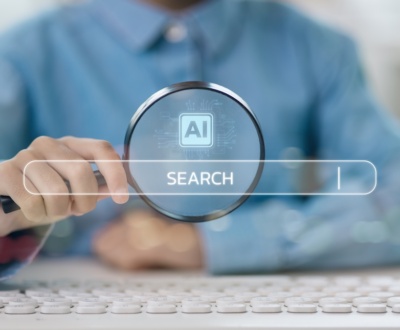

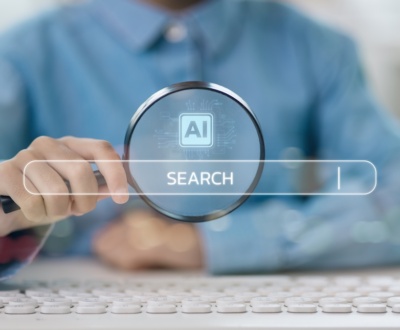
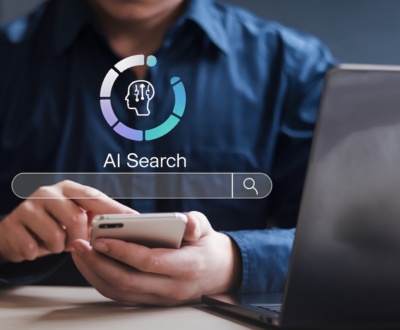
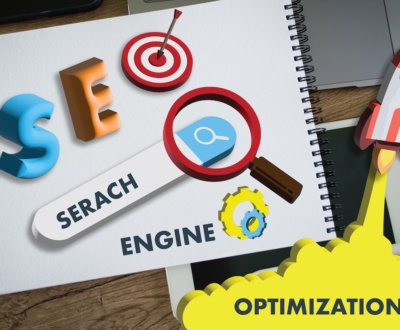

Pingback: Top SEO Agency for Education | Boost Visibility & Tru - ROI Digital Agency
Pingback: What Is AI SEO? A Guide to Smarter Search Optimization Ronan Mullaney ROI Digital Agency
Pingback: How to Get Listed in AI-Generated Search Results - ROI Digital Agency
Pingback: SEO Marketing Strategies for Education: Boost Schools & Universities - ROI Digital Agency